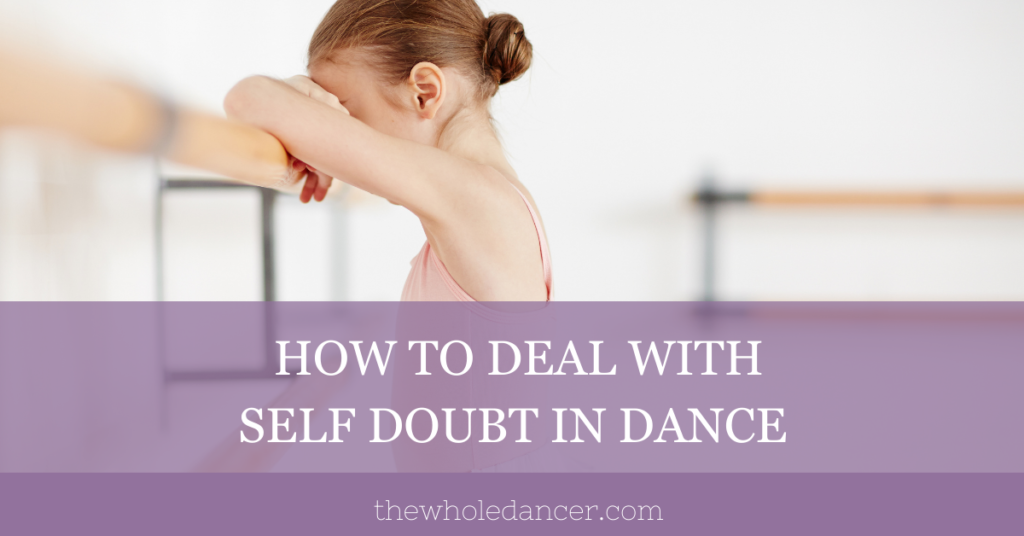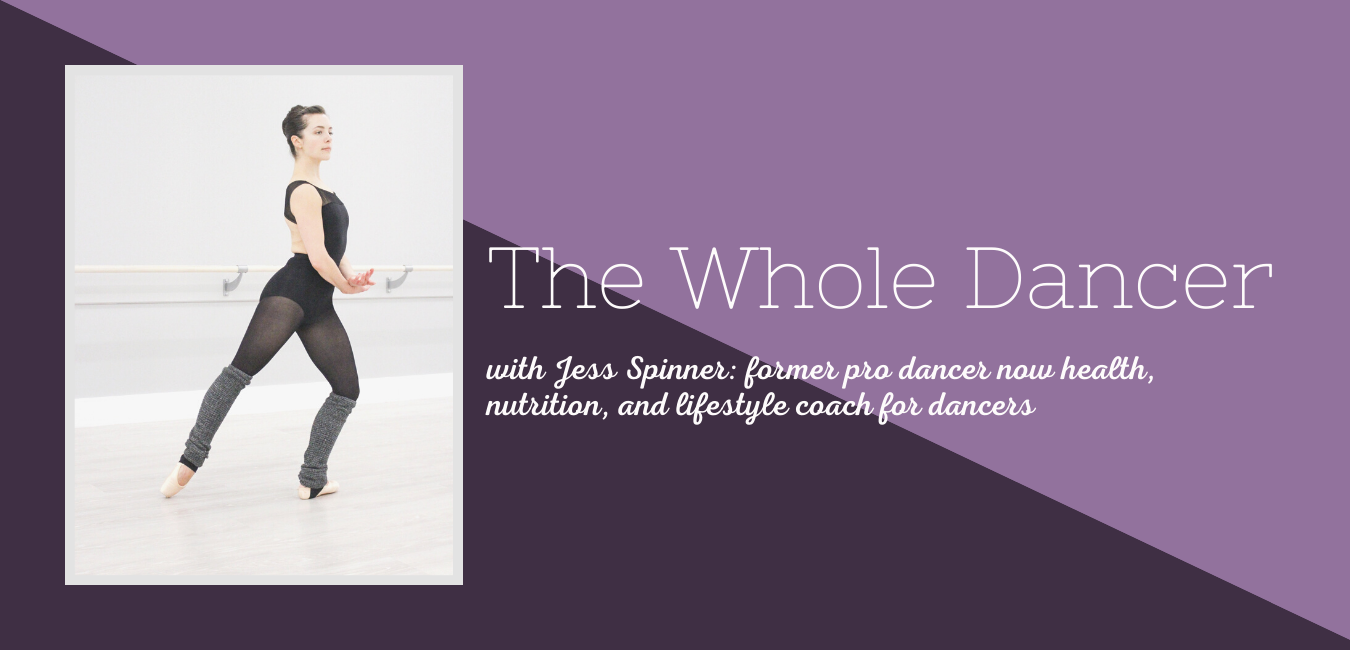Whether you’re auditioning or you’re already in a company position, self-doubt is a common struggle among dancers. It’s perfectly logical that in such a competitive and comparison-driven field, you would, at times, doubt your ability to “make it.”
But it is possible to cultivate greater levels of confidence and self-assuredness so you can overcome those moments of doubt when they arise.

Consider when self-doubt shows up for you.
Auditions or casting situations are big opportunities for doubt to creep in. You’re being judged against your peers by an outsider (usually) who might not know you. They don’t know about your work ethic, your dedication, or potential for success.
Come back to your potential, your goals, and your “why.” This one audition or one role doesn’t have to be the one that works out for you. My audition advice always includes casting a wide net because you can’t predict where you’ll get accepted or hired.
If you show up on the day of an audition and start to think you’re not deserving of being there after all your years of hard work, it’s possible you’re getting caught up in imposter syndrome. Imposter syndrome, put simply, is doubting your abilities or feeling like a fraud. Remind yourself of your hard work. You have every right to be in that room as the dancer next to you does.
What to do when a friend gets something and you don’t.
This is going to happen. I’ve often retold the story of auditioning all over the US with two of my best friends in my senior year of college. At the time, I really wondered if auditioning with them was a mistake because I assumed my friends would always be chosen over me. What really happened was that we each got different offers.
If you’re auditioning for summer intensives and having this experience, you should apply the same logic. Not every company or school is going to see your potential. They each look for different attributes and movement qualities, and you won’t be everyone’s cup of tea. Be happy for your friends when opportunities come their way and know that your next best step is coming too.
Consider embracing something larger than yourself.
Spirituality is something that I talk about at The Whole Dancer because it can be forgotten. It’s not a singular idea. Spirituality might be religion or a belief in the universe or a connection to nature. It’s really whatever you choose to define it as, but finding that connection for yourself can support you through moments of doubt.
A spiritual connection can instill a belief that another opportunity will arise. You’ll be able to see a path or trust that one will present itself when the time is right.
You do have the power of choice in your life, but there are also lots of circumstances outside of your control. Connecting to something bigger can help you to lean more easily into the things you can control.
Get comfortable with uncertainty.
An acceptance that there are a lot of things in life we can’t control is key to moving forward in a more productive way. When you choose to focus on the things you can control like how you choose to show up, your reactions, and how you support and treat yourself and those around you, things can find greater balance.
It’s very likely that in times of fear or uncertainty, you rely on habits or patterns that feel comforting. When I was caught up in restrictive patterns with food, my response to stress and uncertainty was often to eat when I wasn’t hungry or binge.
Start to practice acknowledging and sitting with more challenging feelings or experiences.
“Ordinarily we are swept away by habitual momentum. We don’t interrupt our patterns even slightly. With practice, however, we learn to stay with a broken heart, with a nameless fear, with the desire for revenge. Sticking with uncertainty is how we learn to relax in the midst of chaos, how we learn to be cool when the ground beneath us suddenly disappears.”
Sit with self-doubt and ask yourself where it’s stemming from. Being present with your feelings is essential if you’d like to work through them. Seek support when needed, but also build that skill within yourself to sit in discomfort.
Assess your self-talk.
You likely engage in negative self-talk at some point throughout the day. Even for the most optimistic in the bunch, this doubtful voice can creep in and drag you down. Negative self-talk and self-doubt are closely intertwined. They fuel one another.
Mastering your mind is a must if you wish to achieve great things. Plain and simple, the thoughts that enter your head have a HUGE impact on how you perform.
In integrative nutrition health coaching, something we talk about when it comes to finding balance with sugar is “crowding out” added sugar with alternatives like dates, fruit, or sweet vegetables. You might consider “crowding out” negative self-talk with uplifting reframes, mantras, or affirmations. A mantra I love (that can apply to dance or life in general) is, “it’s my time and I’m ready for the next step.”
Commit to working through the fear.
Self-doubt is a survival mechanism. You might doubt your ability or focus on what could go wrong in order to protect yourself from rejection or putting yourself out there. It’s a daily practice to move through fear and doubt and go after your goals and dreams in dance.
Something I’ll often ask the dancers I work with is, “What’s the worst thing that could happen?” Next time you’re doubting yourself or holding yourself back from taking the next step in your journey, ask yourself that question. You might get rejected. That just means it’s not the right place for you. Commit to going back out and finding your place to dance.
